
https://youtu.be/vP3VOKBcloo?si=uP1J0vaS-RcZGfvh
Why do we procrastinate ⏲️ 6 Minute English

English from BBC learning english dot com .
Hello , this is six minute English from BBC .
Learning English .
I'm Sam and I'm Neil .
Come on , Neil , Let's make a start .
I've got a deadline to meet today and I haven't finished my work yet .
Let me guess .
It's because you delayed and delayed and put your work off until the last minute .
As usual , You're a real procrastinator , Sam .
Someone who keeps delaying things that need to be done .
What can I say ?
I work better when a deadline is approaching .
I see .
But did you know that people who procrastinate have higher levels of stress and lower well being ?
Procrastination is also linked with lower financial and career success , so there's a lot of reasons not to do it in this programme .
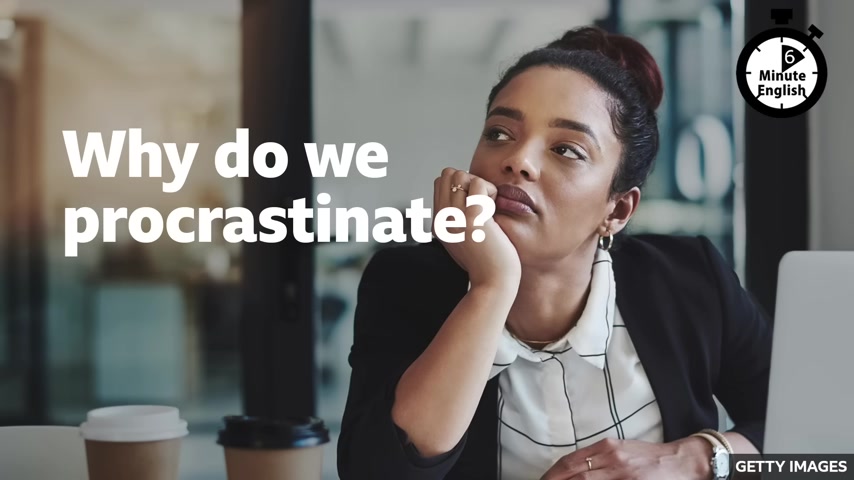
We're discussing procrastination , the act of delaying things that must be done until later , often because they're difficult , boring or unpleasant .
And as usual , we'll be learning some new vocabulary along the way .
So without wasting any more time , I have a question for you , Sam .
The fact that procrastinating or putting things off is bad for us doesn't stop people doing it , according to recent research by DePaul University in Chicago .
What percentage of people procrastinate so much that it interferes with their day to day life ?
Is it a 10% B , 20% or C ?
30% ?
I'll guess that around 10% of people have a serious procrastination problem .
OK , Sam , we'll find out the answer later in the programme .
Sam is certainly not alone in putting things off until the last minute .
Here's Ella Alshammari , presenter of BBC Radio four's .
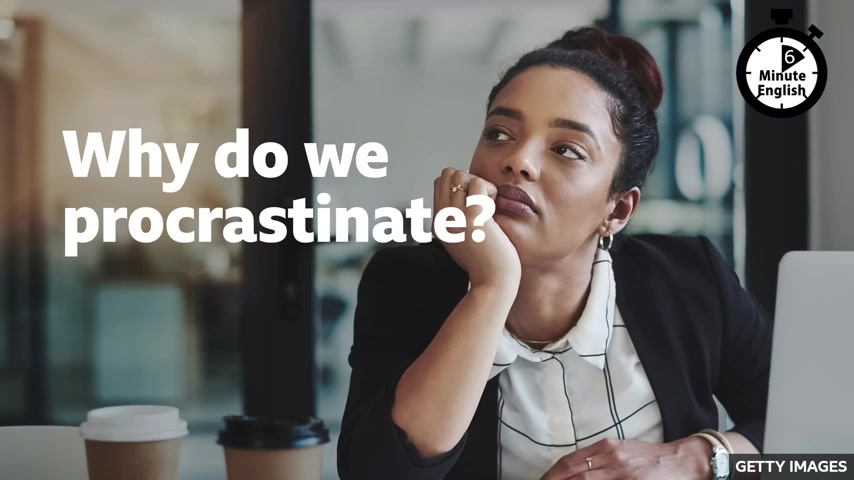
Why do we do that ?
Talking to comedian Ian Akbar about his procrastination habit , would you say , is that you're a procrastinator ?
I am a serial procrastinator without a shadow of a doubt .
Why why do you think you procrastinate ?
Over the years , I've told myself that I procrastinate because I work better under pressure .
That's what I've told myself .
Ishan thinks that he is a procrastinator without a shadow of a doubt , a phrase which is used to emphasise that you are completely certain of something .
Yan also says that like Sam , he works better under pressure when he feels stressed or anxious because of having too much to do .
But maybe also , like Sam , Yan has a problem organising his workload and managing his time .
Hang on , Neil .
My time management skills are OK , Thank you with me .
It's more of an emotional response .

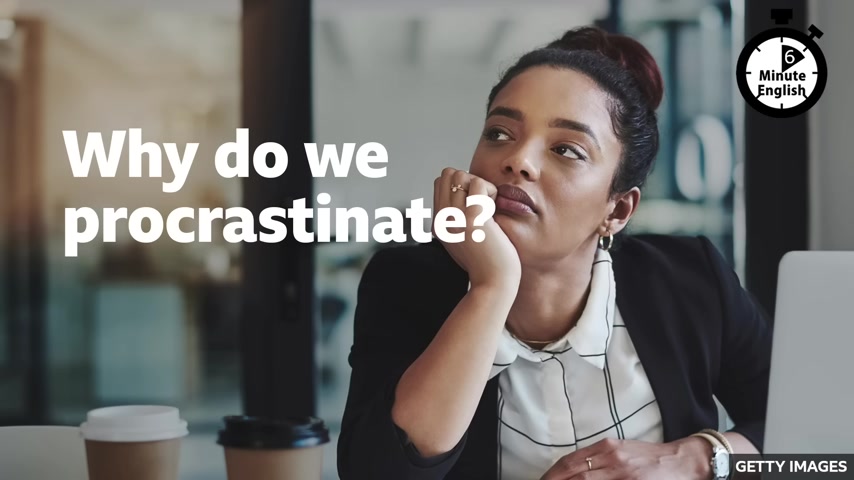
I see a mountain of work feel threatened and think , How on earth will I finish all that ?
What Sam says is supported by a theory of human evolution , which explains how putting things off is an emotional response .
Back when we were living in caves , life was dangerous and short and our ancestors were impulsive .
They acted suddenly on instinct without thinking about the consequences of what they were doing back then .
Being impulsive was a good thing .
But in modern life , with work goals and deadlines , when we are impulsive and get distracted , we procrastinate .
So rather than being a problem with time management , Sam should blame her caveman ancestors who acted on impulse .
Hm .
Let's listen again to comedian Isan Akbar talking about how he feels when he procrastinates a lot of stuff you read about procrastination focuses on the time management element of it .
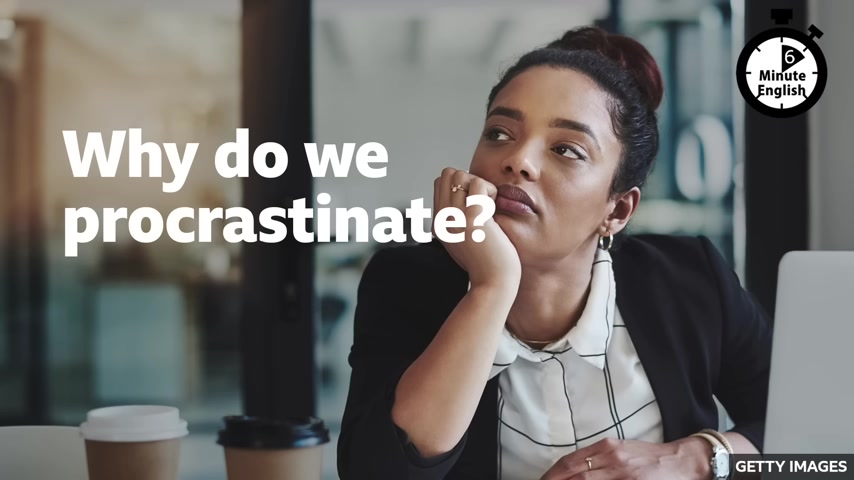
I've probably got a better sense that for me it seems very squarely around the emotional aspect of it .
Perhaps I get more emotional gratification from doing it last minute , and I need to understand why , why ?
I prefer that over the calm serenity of getting things done with oodles of time in my hands , in the same way that our ancestors felt good living on impulse , Ishan thinks he gets gratification , a feeling of pleasure and satisfaction from doing things at the last minute .
What he doesn't understand is why he prefers to work under pressure instead of finishing calmly with oodles or lots of time .
Unlike Yan , I'd rather finish my work feeling relaxed , but there never seems to be enough time .
Well , breaking down the task into smaller stages also breaks down the level of threat you feel from your workload .
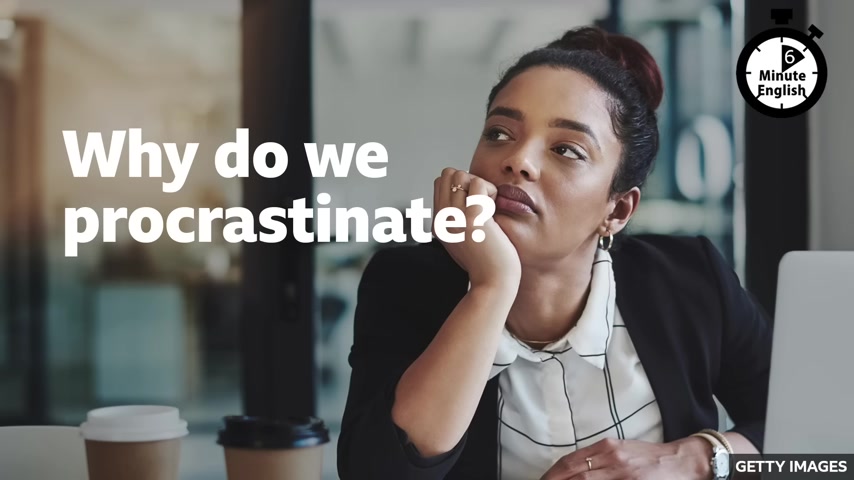
Also forgiving yourself for procrastinating in the past seems helpful in avoiding procrastinating in the future .
So forgive yourself and start making changes .
Sam , before you end up like the time wasters in my question , what percentage of people procrastinate so much that it interferes with day to day life ?
Hm ?
Well , I guessed it was 10% which was the wrong answer , I'm afraid .
In fact , around 20% of us have a procrastination habit so strong it makes life difficult .
OK , let's recap the vocabulary we've learned from this programme on procrastination , delaying or putting off doing things until later , often because they're difficult , unpleasant or boring .
The phrase without a shadow of a doubt is used to emphasise that you are completely certain of something .
If you're under pressure , you feel stressed or anxious because of having too much to do .

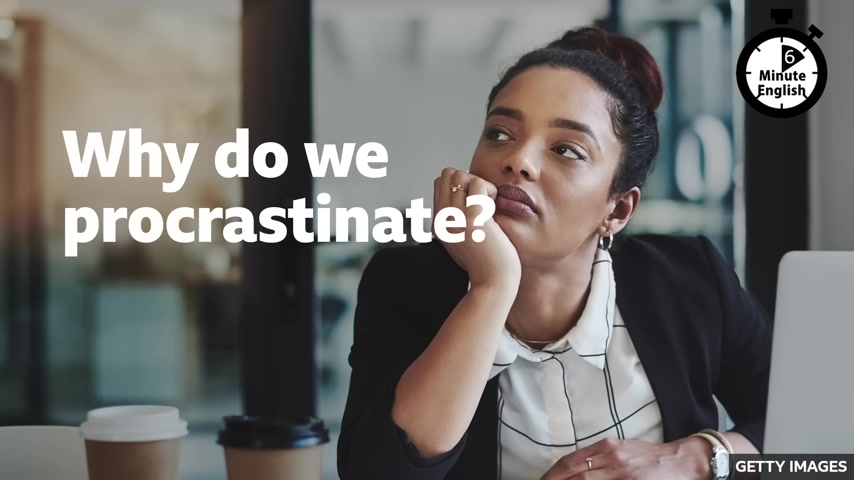
Impulsive behaviour is sudden and spontaneous , done without thinking about the consequences .
Gratification means a feeling of pleasure and satisfaction .
And finally , when you have oodles of something , you have a very large amount of something pleasant , like time , which once again we've run out of .
I'm rushing off to finish my work , Neil .
But remember to make time to join us again soon .
Here at six minute English Bye for now .
Goodbye English from BBC learning english dot com
Are you looking for a way to reach a wider audience and get more views on your videos?
Our innovative video to text transcribing service can help you do just that.
We provide accurate transcriptions of your videos along with visual content that will help you attract new viewers and keep them engaged. Plus, our data analytics and ad campaign tools can help you monetize your content and maximize your revenue.
Let's partner up and take your video content to the next level!
Contact us today to learn more.